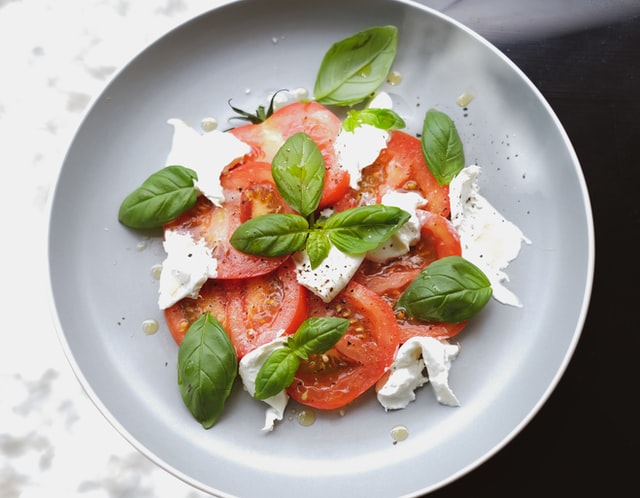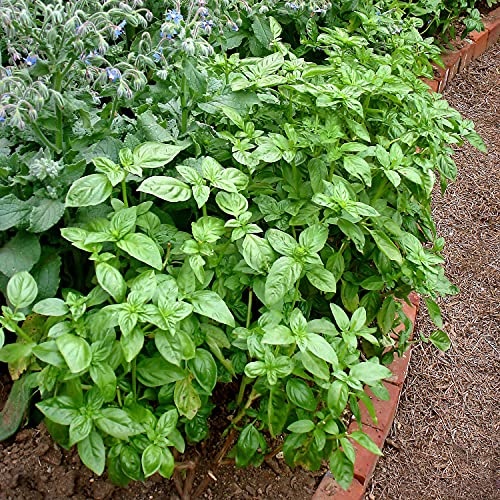Companion planting has been found to not only improve the health of your plants but to prevent various pests and diseases from harming your plants.
Basil is a very common choice for companion planting due to its strong smell. Basil is a wonderful companion plant for most gardens!
Here is the run-down on basil as a companion plant!
What are 5 benefits of companion planting?
Companion planting has many benefits for the garden. From the look to the health of your garden, companion planting can really up your gardening game!
- Diversity
- Pest control organically
- Soil improvement
- Garden aesthetic
- Beneficial insects
Diversity in the garden helps shape the health of your garden! By having a more diverse ecosystem, you are inviting wildlife into your garden and thus improving the world! Through a diverse ecosystem, you not only have a beautiful garden but a healthy soil filled with the good insects your garden needs!
Pest control is the major benefit of companion planting. Many boast of how their simple interplanting of varied plants help drive pests away from their prized plants! Whether the smell deters them or they would much rather snack on a companion plant, this really helps bring down the pest load on your plants.
What are the disadvantages of companion planting?
The only true disadvantage of companion planting is its oversimplification of it. Many believe this is the cure-all for their garden. The best way to improve your garden is to be out there and take a proactive stance against any issues inside your garden.
Another disadvantage is that you may find that some of your companion plants are competing for resources. You may have higher requirements for fertilizer and water.
Related Article: Best Time To Mist Plants
Best Veggies for Companion Planting With Basil: What is basil a good companion plant for?

Basil is a fantastic companion for many of our favorite backyard plants! Basil’s strong odor makes it great for deterring pests.
What vegetables can I plant basil next to?
Basil does very well with most vegetables! However, the benefits are strongest with:
* Potatoes
* Tomatoes
* Peppers
* Root vegetables
These see amazing results when companion planted with basil. These plants also get a high pest load and could benefit greatly from companion planting basil within the rows.
Potatoes are prone to bugs and by interplanting basil, you can help save these plants from potato bugs.
Root vegetables can thrive with a few Basil plants around. They can often get caterpillars and inevitably die if their leaves are eaten. Caterpillars do not like the smell of basil and will avoid your plants if it is near!
Can basil be planted with tomatoes?
Have you ever had a Caprese salad? Well, that’s your answer!
Basil and tomatoes are perfect buddies and were made to be from soil to plate!
Tomatoes experience a lot of pest damage and need assistance deterring these bugs.
Tomato Hornworms do not like the smell of basil and will usually avoid your plants near the basil.

Can you plant basil next to peppers?
Peppers are another one that can experience a high pest load. Planting these companions next to each other can help keep insects off your pepper plants.
Pepper plants are prone to spider mites who also hate basil!
What should you not plant with basil?
While basil is pretty easygoing with who its neighbors are, there are a few that they just do not do well with. If you plan on saving seeds from your basil, you might need to keep varieties separated to avoid cross-pollination.
Cucumbers
Cucumbers won’t be harmed by the basil, but due to their watery flesh, they are prone to absorbing the flavor of nearby basil!
Sage
Basil does not affect sage; however, due to their very different requirements; they just won’t be a good match for companion planting!
Thyme
This is the same as it is with sage. Opposites just do not always attract.
Conclusion
Basil is one of the safest choices for companion planting. It not only helps to keep the plant safe from pests, but the flavor is unmatched in pairing with the foods it helps to grow. This culinary herb makes a great spice for Italian dishes. If you find yourself with too much basil make tea!

